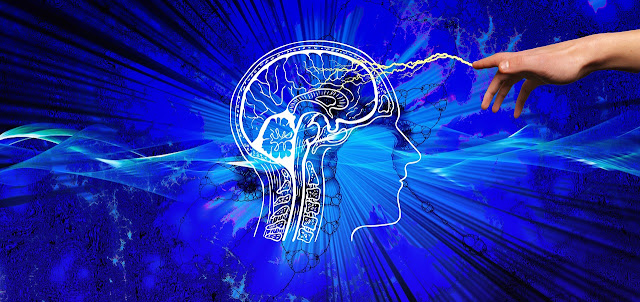"Empower your health journey with a positive mindset, conscious choices, and belief in your potential. Manifesting desires aligns thoughts, actions, and epigenetics, shaping a path to well-being." - Michael Corthell
The connection between the mind and the body has long been a subject of interest for scientists, philosophers, and health practitioners alike. In recent years, three intriguing concepts have gained attention: mindset, manifesting, and epigenetics.
These concepts suggest that our thoughts, beliefs, and emotions can influence our health outcomes, that we have the power to manifest our desires into reality, and that our lifestyle choices can affect our genetic expression.
This essay explores the interplay of these three elements and their potential impact on our health and well-being.
Mindset and Health:
Mindset refers to our beliefs and attitudes towards ourselves, others, and the world around us. It can be broadly categorized into two types: a fixed mindset and a growth mindset. A fixed mindset assumes that abilities and traits are fixed and unchangeable, while a growth mindset believes that talents and qualities can be developed through effort and learning.
Numerous studies have linked a positive mindset to better health outcomes. Individuals with a growth mindset tend to engage in healthier behaviors, such as exercising regularly, eating well, and seeking help when needed. This mindset also fosters resilience and coping skills during challenging times, contributing to better mental health. On the other hand, a fixed mindset can hinder personal growth and discourage individuals from making positive changes to improve their health.
Moreover, our perceptions and responses to stress can profoundly impact our health. A positive mindset and stress-coping mechanisms can buffer the negative effects of stress on the body, reducing the risk of stress-related health issues.
Manifesting Desires and Health:
Manifesting, often associated with the law of attraction, proposes that focusing our thoughts and emotions on our desires can attract those desires into our lives. While the scientific evidence for manifesting is limited, there are some psychological and neurological principles that might support certain aspects of this concept.
Neuroplasticity, the brain's ability to reorganize and form new neural connections, suggests that by consistently focusing on positive thoughts and visualizing desired outcomes, we might be able to rewire our brain to be more receptive to opportunities that align with our goals. Additionally, the self-fulfilling prophecy phenomenon explains how believing in the achievement of a goal can influence our actions and decisions, ultimately leading us to attain that goal.
While manifesting desires is an intriguing concept, it is essential to approach it with a balanced perspective. Positive thinking alone might not lead to the realization of all desires; concrete actions and realistic goal-setting are equally vital in achieving success.
Epigenetics and Lifestyle:
Epigenetics is the study of how environmental factors, including lifestyle choices, can influence gene expression without altering the underlying DNA sequence. This field highlights the dynamic interplay between genetics and the environment, suggesting that our lifestyle choices can impact the way our genes are expressed.
For example, stress, diet, exercise, and exposure to toxins are among the factors that can influence epigenetic modifications. Chronic stress, for instance, can lead to epigenetic changes that affect gene expression related to the stress response, immune function, and other physiological processes. Similarly, a healthy diet and regular exercise have been associated with positive epigenetic changes that can support better health outcomes.
Understanding the epigenetic influence of lifestyle choices can have significant implications for personalized medicine and health interventions. Tailoring treatments and lifestyle recommendations based on an individual's unique epigenetic profile might enhance health outcomes.
The Integrated Perspective:
Mindset, manifesting, and epigenetics offer complementary insights into the power of our thoughts, beliefs, and lifestyle choices in shaping our health and well-being. A positive mindset can promote healthier behaviors and resilience while manifesting can potentially influence our mindset and actions to work towards our goals. Simultaneously, lifestyle choices can impact our genetic expression through epigenetic mechanisms, providing a tangible connection between our behaviors and our health outcomes.
While these concepts hold promise, it is essential to approach them with a critical mindset. They are still relatively young fields of research, and many questions remain unanswered. Integrating these concepts into a holistic approach to health and well-being, complemented by evidence-based medical care, is key to making the most of their potential benefits.
Conclusion:
The convergence of mindset, manifesting, and epigenetics offers a fascinating perspective on the dynamic relationship between our thoughts, behaviors, and health outcomes. Cultivating a positive mindset, setting realistic goals, and making conscious lifestyle choices can potentially enhance our overall well-being. Embracing these concepts alongside evidence-based medical care can empower individuals to take an active role in their health journey, promoting a sense of agency and well-being.
Further Reading:
Dweck, C. S. (2006). Mindset: The New Psychology of Success. Random House.
Lipton, B. H. (2005). The Biology of Belief: Unleashing the Power of Consciousness, Matter & Miracles. Hay House.
Szyf, M., & Bick, J. (2013). DNA Methylation: A Mechanism for Embedding Early Life Experiences in the Genome. Child Development, 84(1), 49–57.
Lyubomirsky, S. (2007). The How of Happiness: A Scientific Approach to Getting the Life You Want. Penguin Books.
Creswell, J. D. (2017). Mindfulness Interventions. Annual Review of Psychology, 68, 491-516.
Chopra, D. (2010). The Seven Spiritual Laws of Success: A Practical Guide to the Fulfillment of Your Dreams. Amber-Allen Publishing. Video
How Your Genes Listen to Your Beliefs with Dr. Bruce Lipton
The Ancient Secrets To The Law Of Assumption
Mastering The Art Of Manifestation
Neuroplasticity

Comments
Post a Comment